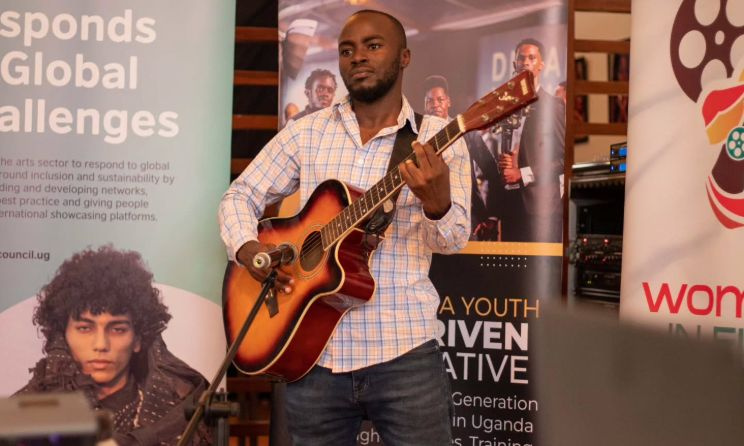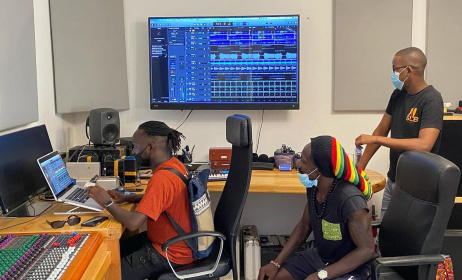What Uganda’s music scene looks like from Kenya (and why it matters)
After spending just 10 days in Nairobi, Kenya—the longest I’ve ever been outside Uganda—I’ve gained a unique perspective on my country’s music industry. My journey here was motivated by a desire to explore and understand the dynamics of the East African music scene, and in doing so, I’ve realised the value of stepping outside one’s comfort zone to gain fresh insights.
 Collin Sserunjogi.
Collin Sserunjogi.
Seeing Uganda’s music industry through new eyes
From the vantage point of Nairobi, Uganda’s music industry appears vibrant, deeply rooted in local culture, and well-consumed by its own people. Outsiders often describe Uganda as the East African party capital, a place where nightlife thrives all year round with an unmatched energy. Kampala’s night industry is immense, with countless events that highlight the popularity of local music genres, particularly Kidandali. This genre, while widely recognized at home, is often perceived by outsiders as a singular representation of Ugandan music, leaving little room for differentiation in the global arena.
Interestingly, while Ugandan music enjoys robust local support, its presence beyond our borders seems limited. Many Kenyans I’ve interacted with are only familiar with Jose Chameleone, an artist who rose to prominence years ago. This raises questions about why more Ugandan artists aren’t breaking through to neighboring markets like Kenya, despite the proximity and shared cultural ties.
Kenya: A well-established economy with emerging opportunities
Nairobi, on the other hand, is a city bustling with investment in technology, real estate, hospitality and more. Its economic foundation is more developed compared to the rest of East Africa, and this reflects in the structure and ambition of its creative industries. While I’m still in the early stages of my observations, it’s evident that the Kenyan music industry benefits from this strong economic base. However, I’ve also noticed that the challenges faced by Kenyan artists mirror those in Uganda—a lack of access to sufficient resources to compete globally.
Lessons and opportunities for East African artists
These observations have led me to reflect on the immense opportunities that exist for East African artists if we choose to bridge the gaps between our industries. For instance, Uganda’s vibrant nightlife and loyal local audience could inspire collaborative events and music exchanges with Kenya, whose artists have experience navigating a more competitive, structured economy. Together, we could redefine the East African music narrative and create a shared identity that attracts global attention.
A recurring theme in my conversations with professionals, musicians, and expats here in Nairobi is the need for better infrastructure and resources to elevate East African music. The success of West African and South African artists on the global stage has set a benchmark that we, as East Africans, must strive to meet. This calls for greater collaboration, an understanding of each other’s geopolitics, and a deliberate effort to expand our reach as a unified region.
Conclusion: The power of perspective
Being in Nairobi has taught me the value of looking at one’s industry from an outsider’s perspective. It sheds light on blind spots and uncovers opportunities that might otherwise go unnoticed. For Ugandan artists, this means leveraging the strong local support we enjoy at home while exploring ways to connect with audiences across the region. Similarly, Kenyan artists can learn from Uganda’s thriving nightlife and apply those lessons to their own context.
Ultimately, the goal is to create an open market where East African artists can thrive collectively, showcasing our rich diversity while competing on the global stage. It’s only through mutual understanding and collaboration that we can make East Africa a powerhouse in the global music industry.
This journey has just begun, and I look forward to discovering more as I continue to experience Nairobi and connect with the incredible talent here. For now, I encourage every East African artist to step out, explore, and see the opportunities that lie beyond their borders.
Collin Sserunjogi is a Ugandan musician and writer. The opinions and views expressed herein are solely his own and do not reflect the position or stance of the publication.




























Commentaires
s'identifier or register to post comments